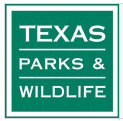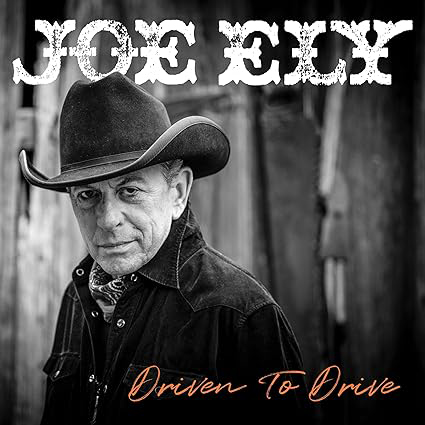
Driven To Drive
OR The Long Run
In my reporting on TPWD fish stocking habits and procedures – related to two regions, The Piney Woods and Prairies and Lakes, a picture began to emerge in my fly fishing habits over the past two decades. As much as the stories were about TPWD, they are also about Texas fishermen in general. Here’s why …
As Texans, who fish, and God forbid, fly fish, we deal with a set of variables that we have become accustomed to over time. One of the variables we deal with is driving.
Waltz Across Texas
Texas is a freaking huge State! At 268,820 square miles, we are used to saying, “… it takes time to get anywhere,” and at least a hundred other quips that mostly only Texans use, and forget. That is the truth though. And it has become so true that we actually welcome driving great distances – in our fine trucks, air conditioning cranked, and great Texas musicians on the radio (Thanks Joe Ely). It is part of our driving habit in Texas, and fishermen are putting more miles on Texas roads than hunters for a number of reasons. Some of the obvious reasons (fishermen drive more than hunters), I will leave to you, but there are some reasons Texas fishermen drive that may not have ever occurred to us. Let’s take a look.
TPWD Stocking Habits
In my previous articles containing the TPWD scientist’s responses, you see mention of fishermen’s willingness to “drive down the road” to a lake that contains a fish they may dream of catching. The first lake that comes to mind? Of course, the internationally known Lake Fork, Texas.
I have labeled that lake a “Texas Magnet Lake,” and here’s why: TPWD stocking habits for that lake have made it into a “Texas Magnet Lake,” because, they say, people are willing to drive hundreds of miles to fish Lake Fork, Texas, a Texas Magnet Lake. Why are fishermen willing to drive hundreds even thousands of miles to fish Lake Fork? Because TPWD stocks the lake with largemouth bass in massive numbers, absolutely MASSIVE numbers. You may logically ask, “But, why does TPWD stock Lake Fork so massively?” and the answer is because fishermen are willing to drive hundreds, fly thousands and travel day and night to fish Lake Fork, Texas. Lake Fork is a TPWD perpetual loop lake. And of course, they would say the habitat supports it. And it does. But what else does this investment support, other than a weekend zoo of fishermen?
If you have ever spent time around Lake Fork, Texas, you know that other than fishing? there isn’t crap to do – for anyone who doesn’t fish. Nothing. The infrastructure and entertainment is non-existent, but a few great fried food joints – packed to the hilt – with fishermen and women every weekend night? Lake Fork is an entertainment desert destination Texas lake economy.
More Texas Magnet Lakes
In the fleshing out of my stories on TPWD stocking (always only talking about the North Central Texas regions!), other Texas Magnet Lakes came to the surface, not because of largemouth bass stockings, but because of TPWD stocking hybrid bass. I am leaving the smaller stocking of smallmouth bass and striper out of this conversation.
For example, we saw that a lake nearer the DFW Metroplex, but still at significant driving distance (for non-accustomed non-Texans), Lake Tawakoni, has been built into a hybrid bass TPWD Magnet Lake over years of stocking that lake for this awesome fish. The proportions are different from LMB stockings are obviously different for scientific reasons, but again TPWD uses the “drive down the road” reasoning for going heavily into another lake that has no entertainment or “things to do” in close, JUST LIKE Lake Fork, but a bit worse actually.
So what does it mean to have lakes heavily stocked with fish, out in the middle of nowhere Texas, only for the sake of fishing? Well, it means fishermen will drive in, fish, maybe spend the night, fish, and head back home. In between, maybe some great fried food? No significant others would have desire to go along, unless they too fish. How does the economy local to these lakes profit? Gas. Food. Lodging, and that is about it. And who complains the loudest when their lakes are not stocked with millions of fish as usual? Gas. Food. Lodging and the guys who drove all those miles to get to these desert oases.
This TPWD Magnetic Lake perpetual stocking loop makes no sense at all. Here’s why:
It has no wholistic economic stimulus effect.
It burns considerable time a fisherman could be fishing, but is driving.
It never becomes a true family destination. We don’t need anymore Broken Bows, but damn, we need something for the family.
It wastes fossil fuel.
Driving is the most dangerous thing a fisherman does.
It leads to deterioration of Texas road infrastructure.
Magnet Lakes push fishermen away from their local fishing opportunities.
How Can This Problem Be Solved?
First, TPWD needs to be much more aggressive about publicizing their stocking of Texas water bodies – not just during winter trout stockings. All stocking, anywhere and any time. Imagine that! We know it’s not like the trout stocking; these fish have to grow up a little bit first!
Second, TPWD should consider winding down the trout stocking program across Texas, with the exception of the Guadalupe River. Let’s think about getting kids out when Texas is warm, not freezing cold! How about bluegill / sunfish stocking instead? Any idea is better than Texas stocker trout.
Third, TPWD should in my opinion, integrate a more wholistic approach to stocking lakes in the Piney Woods and Prairies & Lakes Regions. Take human population into account as a higher priority. Do away with Magnetic Lakes by stocking equitably across these regions – starting now. Stock historically understocked lakes, like Ray Roberts, with hybrid bass starting ASAP. Also, rank priority stocking based on family values for outdoor experiences. That means lean into ranking lakes, that have surrounding infrastructure for families, HIGHER than the current Magnetic Lakes that do NOT have surrounding family infrastructure.
Texas needs to FEEL FREE TO THINK in more wholistic ways about how what one thing – stocking fish – does to so many other things Texans pay for – gas, time, infrastructure degrading, danger driving etc… It won’t be easy, and the truth is? This is pie-in-the-sky thinking if you ask my new friends at TPWD. There is this thing called “siloing” and that is what Texas Government suffers from – department-think that never really sees the upside for trying to work with other departments, for good reasons and bad. And if they actually break down the silos and TPWD begins to “work outside the box?” I would sure like to know about it! I bet you would too. For now? It is what it is.


You must be logged in to post a comment.